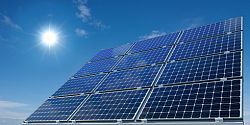

The International Energy Agency (IEA) has published a report - World Energy Outlook 2023 - which is an in-depth analysis of every aspect of the global energy system. The newest report looks at how structural shifts in economies and energy use are altering the way the world meets energy demand.
It states that against the current backdrop of the war in Ukraine and further conflict in the Middle East, the emergence of clean energy led by solar PV and electric vehicles has seen a rise in clean energy investment by 40% since 2020. Whilst there is a strong desire to reduce carbon emissions, part of this shift is due to the positive financial and economic reasons that come from investing in clean energy technology. Furthermore, energy security is becoming an increasing worry due to the current political climate, so domestically produced clean energy is becoming more desirable.
Although the report acknowledges that there is a lot of work to do to ensure we meet Net Zero Emissions by 2050, it sets out that fossil fuel use should peak before 2030. However, if the peak is not met by a fall in demand for fossil fuels, we won't reach global climate goals and we are on course to breach the 1.5°C target set in the Paris Agreement.
The good news is that there does seem to be momentum in favour of clean and renewable energy. IEA Director Fatih Birol said, "The transition to clean energy is happening worldwide and it's unstoppable. It's not a question of 'if', it's just a matter of 'how soon' – and the sooner the better for all of us. Governments, companies and investors need to get behind clean energy transitions rather than hindering them. There are immense benefits on offer, including new industrial opportunities and jobs, greater energy security, cleaner air, universal energy access and a safer climate for everyone. Taking into account the ongoing strains and volatility in traditional energy markets today, claims that oil and gas represent safe or secure choices for the world's energy and climate future look weaker than ever."
The report goes on to suggest a global strategy to get the world on track by 2030. This involves five key actions:
For more information, see: